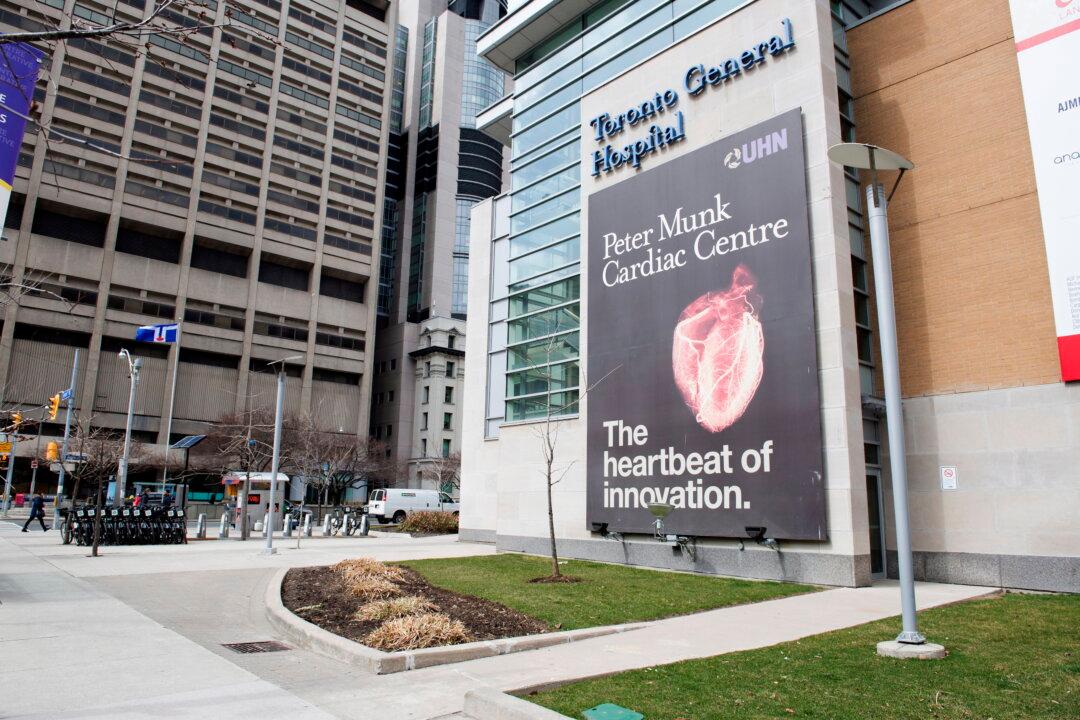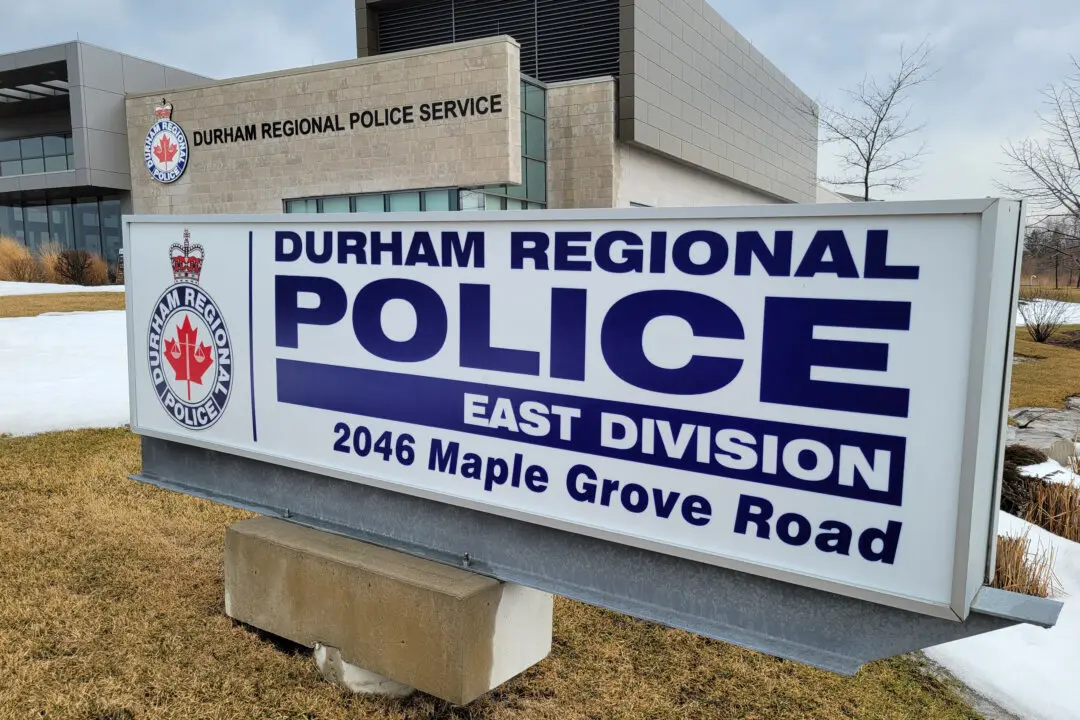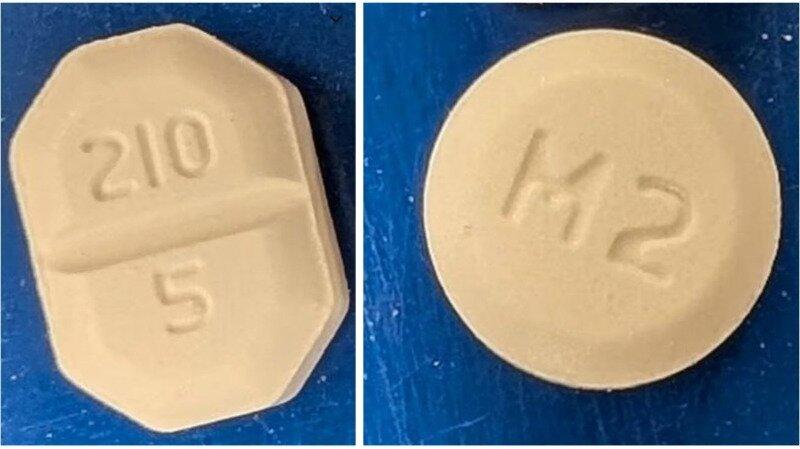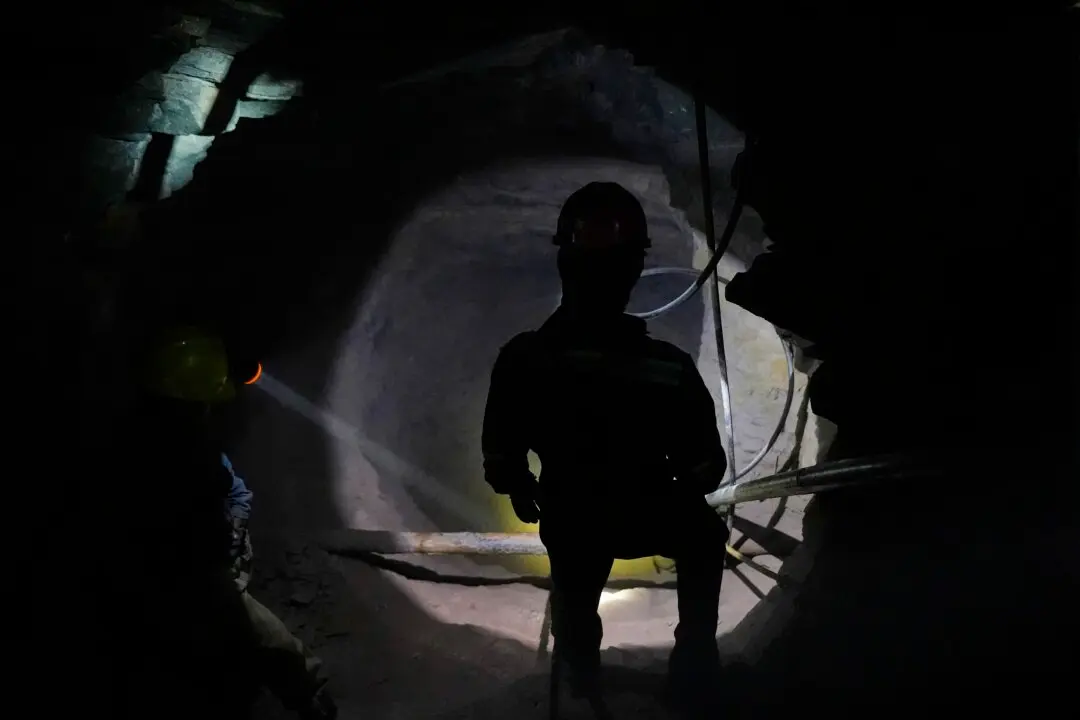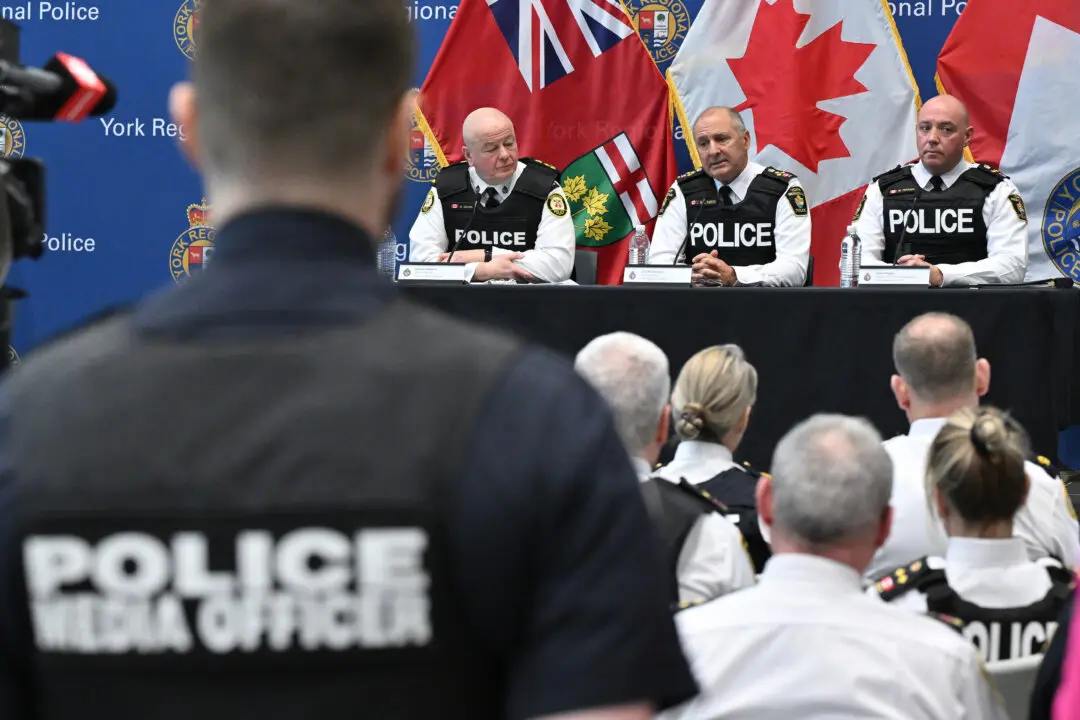The University Health Network (UHN) in Toronto is implementing a mandatory mask policy in response to the approaching respiratory illness season.
Visitors to any of the network’s hospitals—Toronto General Hospital, Toronto Rehabilitation Institute, Toronto Western Hospital, and Princess Margaret Cancer Centre—will be required to don a mask as of Oct. 28, according to a UHN notice posted Oct. 18.
